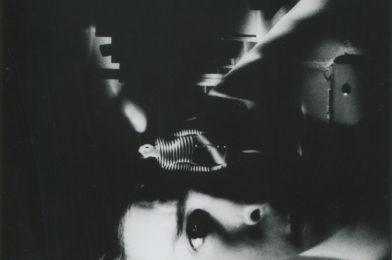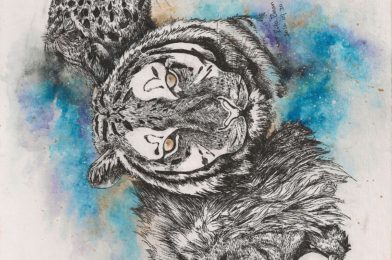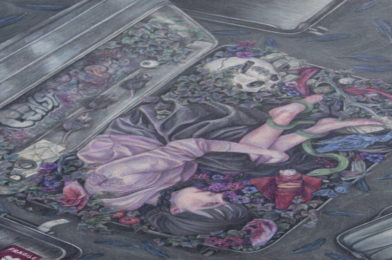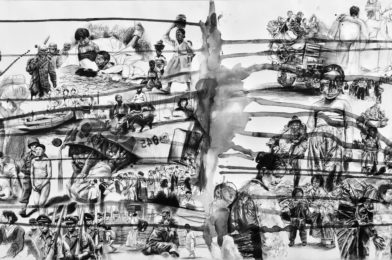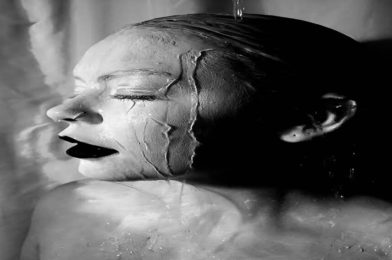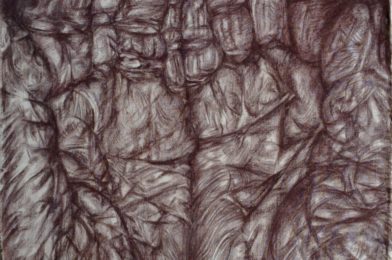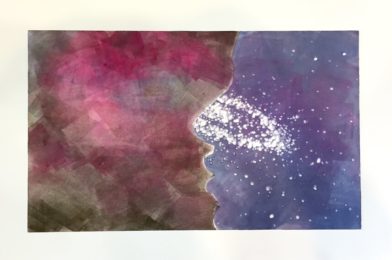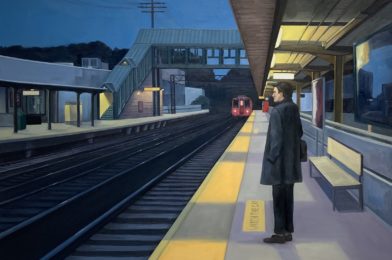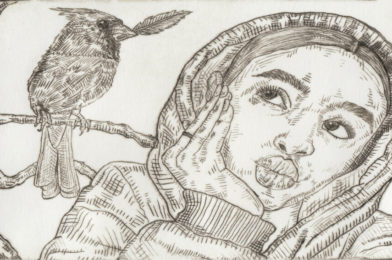One
The violin is in your hands, pale as the tao we shared, stuck to the soles of our teeth
It is at your side, with the shiny brown varnish, the moment we share: surreal
Like the one picnic, red and white cloth between our legs, day cotton. golden sunshine streaked
on cheeks flush with first love’s embarrassment and shine like your music
Except our cheeks are white now, Snow White’s dove circling
As I watch you from the third seat on the left 50 feet above the life stage
a forgotten shadow
A stranger once again, like two years ago
Two
You start singing with your bow, the black air pooling and stuffy,
spotlight on your freckles, tiny stars painted on the sky that is your face, tanned
I remember. You have 7 freckles, three on your hooked nose, Imperfectly flawless
The notes on the page floating off in your fervor and concentrated effort
Three
The music starts slow and cautious, the space between your body and my flowered bosom
Your eyes mixed with dusk and honey, the dawn of something new: perhaps
You smiled, a sideways C, flattened, even when I put on shades, my mask in tints
But you peeled off the pain and anguish floating to the surface, vulnerable
You were connected to me in thick strands and blood
Perhaps I should’ve disappeared, my weight crushing your will to live weightless
Even when I screamed in the war for redemption, numbness spreading in the blotched lake
Your index finger digs into the string born, Dark and dissonant chords ascending upwards as if there is no time left to waste
You stayed, hugging me close, a bear hug on my torso’s curve
Even when I thought my arms too thick
My skin too pale and oily
And my hair not straight enough like the pretty ones
Feeling returned to my body, yours
Mind stronger than will
Shielding me from the wailing gale on our house, intruders
From the bottomless abyss so carefully chosen lest I slip
That fragment my mind into pieces you sewed together
Again and again
Four
You play the fourth movement, the mist and uncertainty fading with new phrases
Reaching the climax of our story, my head resting on your beating chest
The melody tugging at the fated strings that ties the mask to the melted face
This is the piece that we call ours, our relationship’s course in an arch
And paper thrown
Sitting on the long piano seat, the keys gleaming with promise, salty perspiration mixed with dry paint
Not marred with me hurting you, love our white lie, teeth out
My secret in your electric gaze on mine, straining for truth in the lie
Of course I’ll never kiss and tell, watching you now, my throat condensing in waves
Crescendos and fortes outlined on the faded linen sheets,
The energy rising and falling with moving notes gliding across silver strings
Rough and shallow, destined to flow and run out,
And move us in the moment of passion we call lover’s curse
Yet we persevered, a foolish youth’s dream
It was an illusion in the heat
Finale
Every piece has a beginning, middle, and end I think
Your hand catching the stream of tears from my eyes,
Free and drowned
There is silence in tone, a space where I once fit perfectly
And when you bow, a tear trickles down your frosted cheek that I once kissed
Alas I had long left the auditorium and your heart in between the notes and bars
Behind your smooth mask of apathy, fist in heart
You smile and it’s done, as fast as it started like the end of a movement
The end of us, the word sounds weird and
We are strangers once again
Passing shadows in the moonlight as our witness
The symphony ends, the moment gone with the spotlight
Jacqueline Wu is a writer from Long Island, New York. She is a contributor and editor of the acclaimed magazine, Cinnabar. She has also won several art/writing competitions, previously recognized by the Scholastic Art and Writing Awards. She is forthcoming in Body without Organs and Remington Review, among other publications, and she hopes to be able to continue to inspire through her work.
Visual Art By: Ayala Cris

